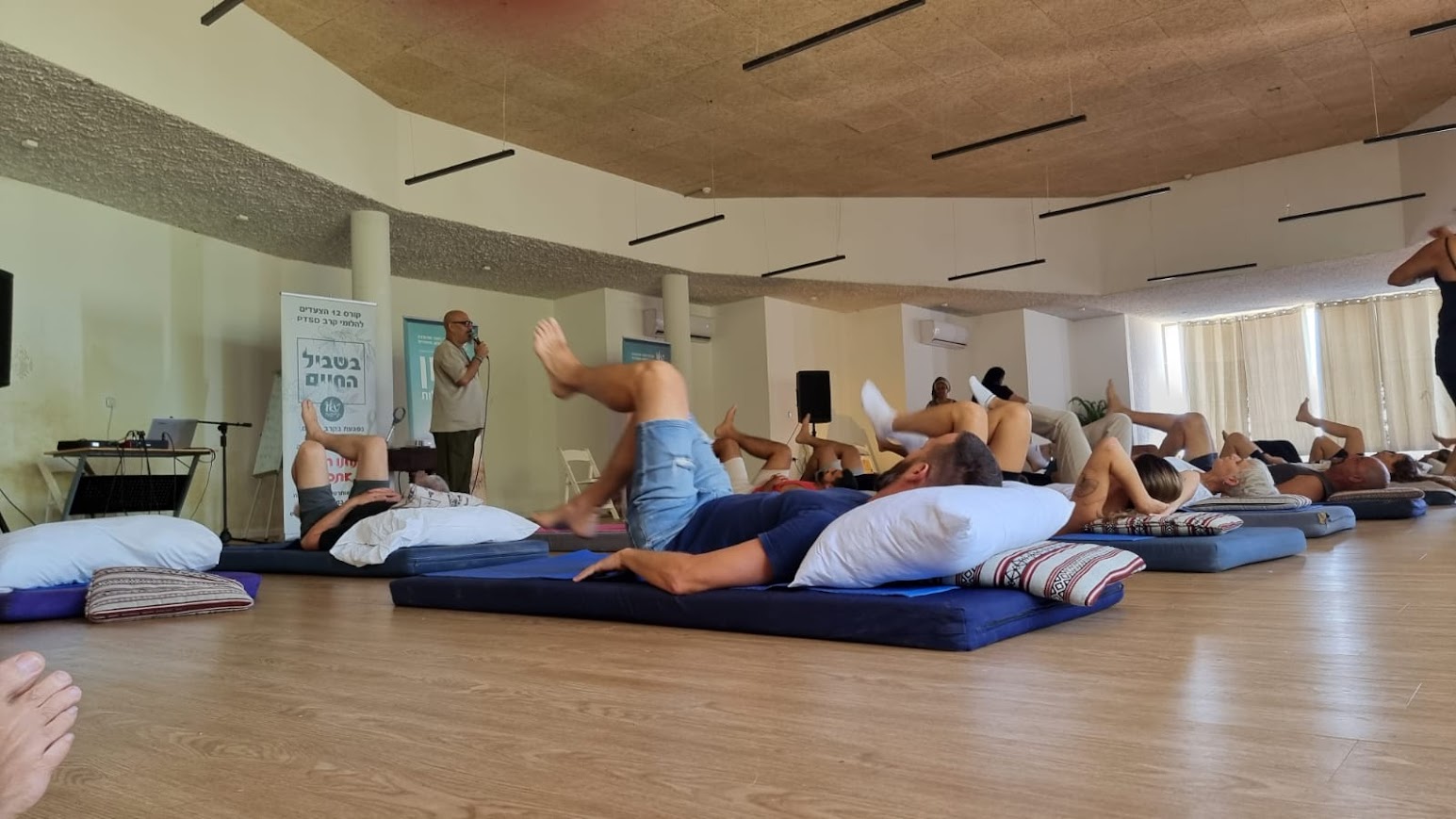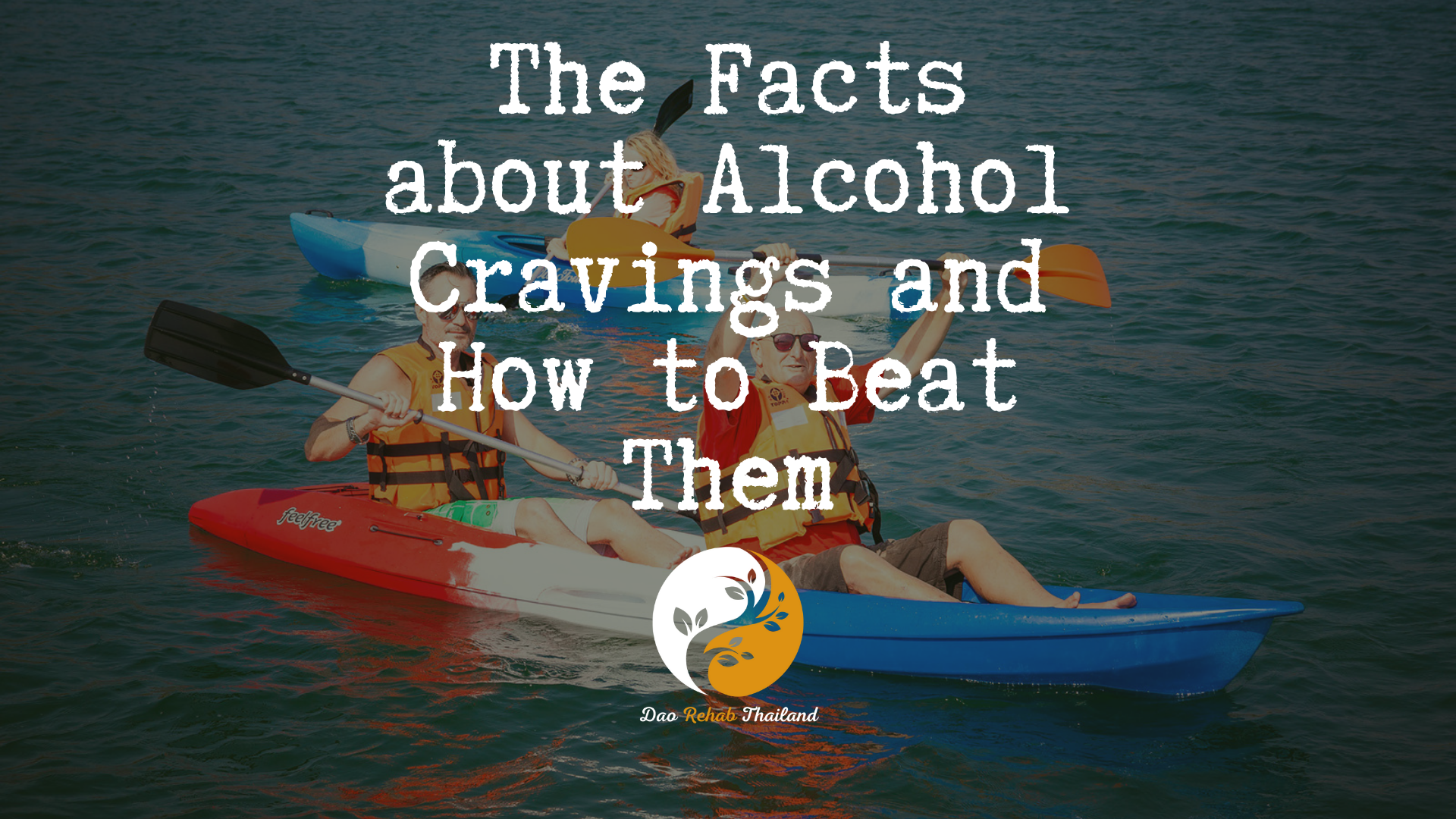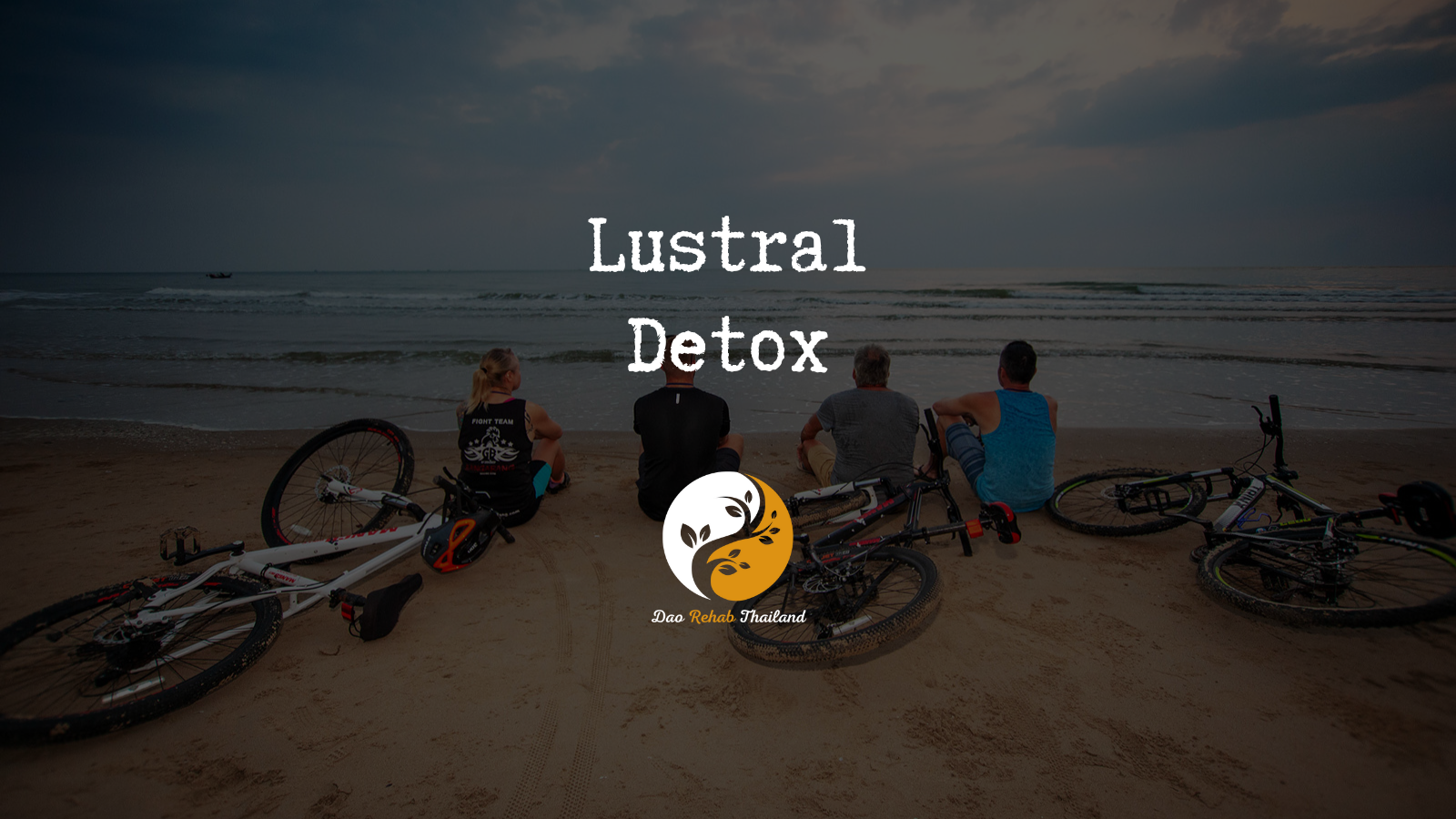
Lost in the world due to trauma
Lost in the world due to trauma
“Turning the impossible into possible”

"Detox from Drugs at a Luxury Holistic Center in Thailand and Israel"

How to stop feeling lost in the world following trauma
Human suffering is a universal experience that often stems from early experiences of trauma, especially in childhood. The feeling of victimhood, the belief that the world is against us and loneliness are the result of vulnerability we experienced in the past, and do not necessarily reflect our current situation. However, healing is always possible, regardless of what we have been through. The key is to recognize that we are not alone – millions share similar feelings, and there is no fundamental flaw in us.
"Holistic Center for Trauma, Addiction, and Mental Imbalance Treatment in Thailand"
“Come to the beginning of your journey to freedom from addiction to alcohol, drugs, and pills, and rediscover your life within the serene embrace of DaoTherapy Rehab in Thailand—where holistic healing meets empowering recovery.”
DaoTherapy Holistic Rehab
Key Elements of DrugsDetox:
Medical Supervision: Drugs detox must be conducted under medical supervision, as the body may experience withdrawal symptoms. These can include nausea, anxiety, muscle aches, and insomnia. A medical team will monitor and manage these symptoms to ensure the patient’s safety and comfort.
Holistic Therapies:
Holistic Therapies: Many detox programs incorporate holistic therapies such as mindfulness, yoga, and meditation to help individuals cope with stress and anxiety during the detox process. These therapies support the mind-body connection and contribute to overall recovery.
Tapering Process
Tapering Process: Drugs detox often involves a gradual tapering of the drug to reduce withdrawal severity. Doctors will slowly decrease the dosage over time to allow the body to adjust to lower levels of the substance.
Psychological Support:
Psychological Support: Like any addiction recovery process, detox from Drugs includes psychological support. This can involve counseling, therapy, or support groups to address the mental and emotional aspects of addiction.
Post-Detox Treatment:
Post-Detox Treatment: After completing detox, continuing treatment is crucial to prevent relapse. This often includes participation in ongoing therapy, group support, and the development of new coping strategies to maintain sobriety.
When we experience triggers that provoke strong reactions in us
When we experience triggers that provoke strong reactions in us, it is important to show compassionate curiosity towards ourselves. Instead of reacting with anger or resistance, we should ask: “What does this experience teach me about myself?” The trigger itself is just a small spark – most of the power comes from our inner emotional charge. Therefore, frustrating situations are invaluable opportunities for a deeper acquaintance with our souls.
The healing process often requires the guidance of a professional skilled in working with trauma. The conventional approach of drug treatment or focusing on changing thinking and behavior patterns alone is not enough to get to the roots of the problem. You should contact therapists who specialize in approaches such as those based on the 12-step method, which provides a holistic response, together with an individual therapist who will accompany you who specializes in the step method,
A key part of the process is developing new relationships with our negative inner voices. Instead of letting them judge and criticize us, we should recognize them as distress signals of young parts of ourselves that need loving attention. When we talk to ourselves as we would talk to a vulnerable child or a close friend, we gradually soften the inner discourse and strengthen mental resilience.
This approach is particularly relevant to modern parenting. The modern environment poses unprecedented challenges to parents and children alike. To enable healthy emotional development of our children, we must begin by cultivating our own happiness and emotional stability. The more whole and calm we become, the more we can give children what they really need: a secure connection, unconditional acceptance and the permission to experience the full emotional spectrum.
Furthermore, we must protect our children from the harmful effects of the digital age. Studies show that premature and excessive exposure to screens can severely damage brain development and social abilities. On the other hand, free play in nature encourages creativity, vitality and resilience. As parents, our role is to create an environment that nurtures the true needs of our children, even at the cost of deviating from the accepted norms.
Ultimately, the journey to self-healing and conscious parenting requires courage and determination. It obliges us to challenge the assumptions and values prevailing in our culture, and strive for a more respectful and benevolent way of life. But the fruits of this inner work – a sense of wholeness, emotional freedom and better relationships with ourselves and those around us – make the effort worthwhile.

contact us
Contact us with your questions
We would love to speak with you! Feel free to reach out with any questions.

get in touch
Schedule a free consultation
Schedule a free consultation with our team and let’s make things happen!
How to get out of victim mode:
If I were talking to a person in a victim situation, I would first of all say that I understand him, because I have also been in such places. I had moments when I thought life was not worth it, and I even imagined my suicide. I never planned it or was going to do it, but I fantasized about it. So, I understand that feeling. Until I came to a 12 step support group and everything changed since then.
The belief that the world is against you stems from a childhood experience
I would tell him that the feeling that the world is against you is not an emotion, but a belief and worldview. If you have that belief, it is because at some point you had that experience. But you are not experiencing it now. This experience was that of a helpless and lonely child. What appears in your belief system is not your current state, but the emotional experience from your childhood.
Healing is possible in the present, regardless of the past
Only in the present can we heal. No matter what happened then, we can heal in the present. The first thing I would ask such a person is, are you willing to consider that healing is possible for you? Or have you given up completely? By the way, a person who has completely given up wouldn’t tell you that, because when people talk like that, whether they know it or not, they’re asking for help. If they weren’t asking for help, they just wouldn’t say anything. Therefore, anyone who talks like that is actually looking for help, and they can get help.
Don’t try to solve it yourself
The second point is not to try and solve it alone. We are human beings, creatures that have evolved in connection and community. You are not alone with this. You may feel that you are alone and certainly may feel lonely, but in fact you are not alone. Millions feel just like you. They are not crazy and you are not crazy. These beliefs and feelings are normal responses to abnormal circumstances. This is how I start working with people with this approach.
Importance of finding help in support groups or experts in the 12 steps
To take it one step further, one of the main problems in society today is that a lot of people who are dealing with mental health issues and they are struggling in situations like this, where they feel stuck and can’t get out of it on their own, they are going to meet someone who is not trained in trauma and does not have the necessary experience. How can someone start down this path and make sure they find someone who is skilled at it and that they are able to regulate themselves when needed?
The difficulty of finding good help in the medical system
Unfortunately, that’s a huge ask. The average doctor doesn’t hear about any of what we’ve been talking about. The average psychiatrist receives no training in trauma. They don’t learn about the traumatic basis of depression, anxiety, ADHD, etc. So it is very difficult to find good help within the medical system. Many therapists do not receive such training either.
The limited therapeutic approaches
There are many therapies that are only designed to change your beliefs and behaviors, but not to address the underlying causes of those behaviors. Many psychologists are skilled in cognitive behavioral therapy (CBT) or dialectical behavioral therapy (DBT), but many of them don’t really know much or anything about trauma. So they can’t help you with the underlying wound you carry. They can help with the manifestations of it, which is not useless, but they cannot help you heal in your core.
Deep therapies that focus on trauma
There are treatments that go deeper than that. There are body-based therapies, such as Somatic Experiencing developed by my friend and teacher, Dr. Peter Levine. There is Sensorimotor Psychotherapy developed by Pat Ogden. There is EMDR that works for some people. There is Internal Family Systems (IFS) developed by Dr. Richard Schwartz. A method of taotherapy which is a compassionate approach based on my work and I train the therapists. And there are other methods I could mention. What you need to look for is someone who is aware of the trauma and is willing to work with you, not only on your behaviors, but on your core wounds of which the behaviors are symptoms. Beyond treatment, the power of a group from experience with combat victims, victims of hostilities, sexual victims is dramatic in the healing process.
Dealing with triggers on the way to recovery
Let’s say someone found someone they feel comfortable with and helps them heal from their trauma and change their present and their current behaviors and patterns, etc. And then it goes weeks ahead, months ahead, and it’s on the upswing, but it hits a trigger. Or he experiences a situation where he says “Oh no, I thought I was getting better. Why is it floating?” What is your advice for people dealing with triggers when they are on the road to recovery from trauma?
Ask yourself: What does this teach me?
There are two ways to ask this question you raised. “Why is it floating?” is this a question not. When you say “why is it floating?” That way, it’s not a question. This is a statement that says it shouldn’t happen to you. That way you won’t learn anything. But if you really ask, “I wonder why it floats,” then you can learn something. You have to remember that healing is a journey of recovery with ups and downs.
The trigger is a learning opportunity
The word “trigger” is a great word. If I were to show you a rifle with the trigger, how big is the trigger part of the rifle? It is very small. For that trigger to trigger something, there has to be a mechanism for feeding ammunition, there has to be ammunition, there has to be an explosive charge. When I encounter a trigger, let’s say you say something to me and I respond – what you said was a very small thing. I’m the one with the explosive charge and ammo. You didn’t make me do it. If I didn’t have that explosive device, you could say whatever you want. I would just sit here and say, “I wonder why he says that.” So Trigger is a great opportunity to learn. When you encounter a trigger, you can focus on resisting and rejecting the trigger, or you can say, “I wonder, what else have I been carrying inside that I haven’t looked at, that I haven’t yet resolved?”
Changing the internal discourse
That voice in your head that tells you all these things, in this book I talk about getting into a relationship with that voice because that’s what I call a “stupid friend”. At some point that voice came when you were quite small. If you suffered as a child or things didn’t go well, there are two assumptions a child can unconsciously make. One is that the world is dangerous, my parents don’t know how to love me, appreciate me, I can’t trust anyone, I
Key insights
1. Healing is possible in the present, regardless of what happened in the past.
2. The belief that the world is against you stems from a childhood experience, not from the current situation.
3. You are not alone in the struggle – millions feel the same way you do.
4. Triggers are a great opportunity to learn about yourself.
5. The inner critical voice is like a stupid friend trying to protect you.
6. A parent’s happiness is the greatest gift he can give a child.
7. It is important to let children express all their feelings.
8. Free and creative play in nature is essential for the healthy development of the child.
9. The digital devices interfere with the normal development of the brain circuits in children.
10. Do not succumb to the false values of the toxic culture in which we live.
Practical advice - Taotherapy College:
1. Look for a therapist who is trained in trauma and the 12 steps and is willing to work on your core wounds.
2. Ask yourself with compassionate curiosity: “What is this teaching me?” Instead of reacting with anger or resistance to triggers.
3. Talk to the critical inner voice as a young friend you no longer need to protect yourself.
4. Parents, take care of your emotional state. Your happiness is the greatest gift you can give your child.
5. Let your children be in nature and play freely and creatively, away from screens.
6. Consciously decide not to adopt the wrong values of the toxic culture.
Psychological Support:
Psychological Support: Like any addiction recovery process, detox from Subutex includes psychological support. This can involve counseling, therapy, or support groups to address the mental and emotional aspects of addiction.
Mantras for self-talk
1. Instead of: “Why is this happening to me?” Say: “Interesting, what does this teach me?”
2. Instead of: “I’m stuck with my trauma,” say: “In the present I can heal, no matter what happened in the past.”
3. Instead of: “I’m alone in this struggle,” say: “Millions feel the same way I do, I’m not alone.”
4. Instead of: “I should be better than this,” say: “I’m doing my best and I’m on the right path.”
5. Instead of: “No one understands me,” say: “There are people who can help me heal and move forward.”
Thought provoking questions:
1. What are the childhood experiences that shaped your basic beliefs and feelings about the world and your place in it?
2. Are there patterns of behavior or thought that repeat themselves in your life, and how are they related to the patterns that your parents had?
3. How do you currently react to emotional triggers that remind you of past hurts?
4. How could your relationships and communication with your children improve if you applied the principles mentioned in the lesson?
5. What is the price you pay for living in today’s “toxic” and alienated culture? Can you imagine a different life?
Psychological Support:
Psychological Support: Like any addiction recovery process, detox from Subutex includes psychological support. This can involve counseling, therapy, or support groups to address the mental and emotional aspects of addiction.








